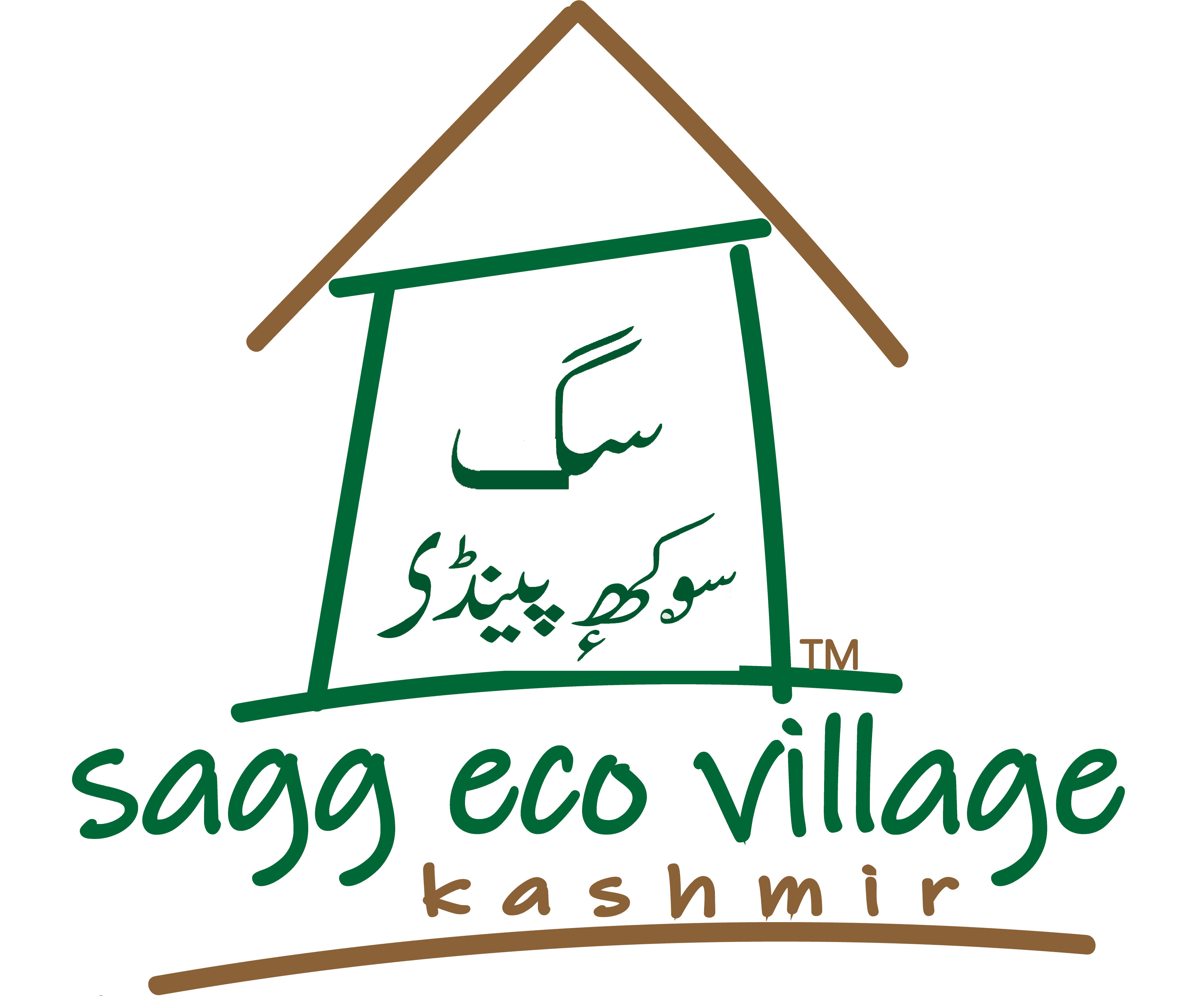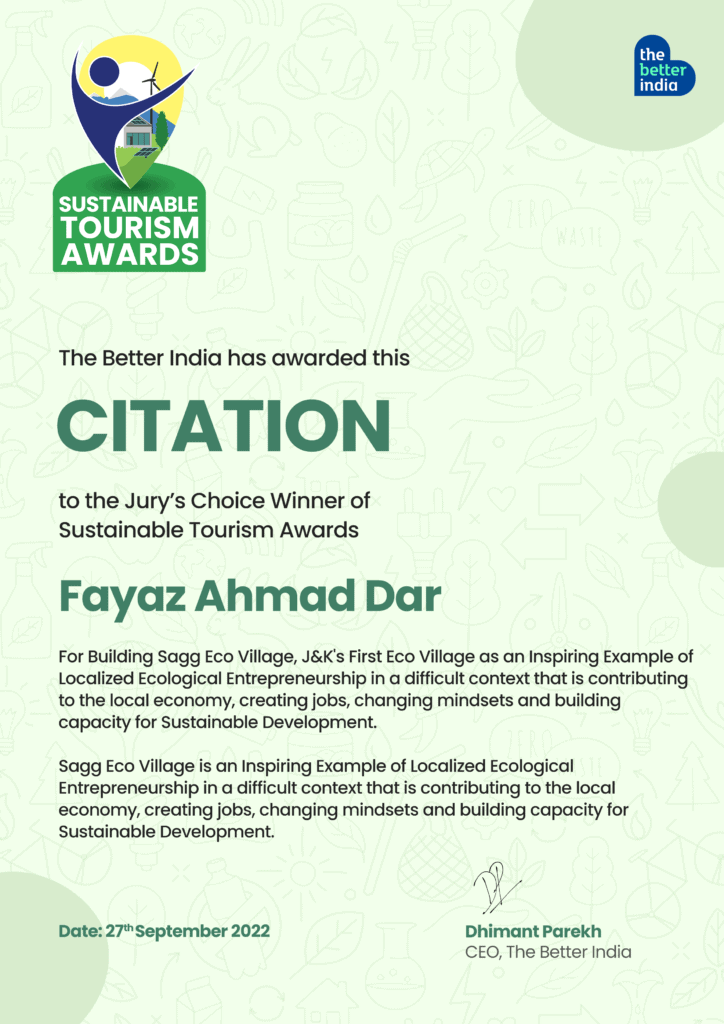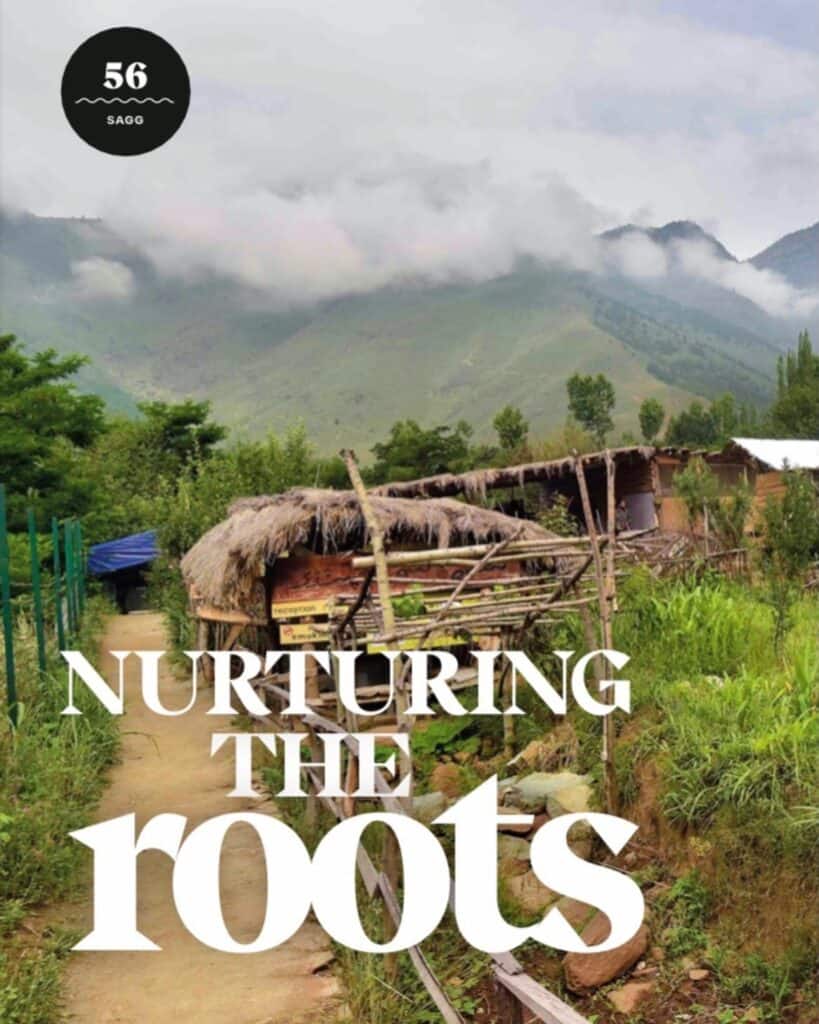As the world moves toward more sustainable living, the tourism and hospitality industries must adapt, especially in fragile ecosystems like Kashmir. Our region’s pristine beauty, diverse culture, and rich heritage attract visitors from across the globe. However, the increasing environmental footprint of tourism has become a pressing concern. At SAGG Eco Village, we believe that tourism, when done right, can regenerate both the environment and the communities it touches.
Hotels and resorts in Kashmir can become champions of sustainable tourism by adopting simple, effective practices that not only protect the environment but also enhance the visitor experience. These practical steps can be implemented with minimal effort, creating long-term benefits for businesses, communities, and nature. Here are 10 easy ways for hotels and resorts to embrace sustainability.
1. Reduce Single-Use Plastics
Plastic waste is a major threat to our environment. Hotels can make a significant impact by replacing single-use plastic items like water bottles, straws, and toiletries with reusable or biodegradable alternatives. Offering guests refillable water bottles and setting up water stations can drastically reduce plastic waste.
2. Implement Energy-Saving Measures
Energy efficiency is not only eco-friendly but also cost-effective. By installing LED lights, motion-sensor lighting in common areas, and energy-efficient appliances, hotels can reduce their electricity usage. This small change can significantly reduce both energy bills and carbon footprints.
3. Encourage Water Conservation
Water is a precious resource in Kashmir. Hotels can install low-flow faucets and toilets and provide guests with towel and linen reuse options. Signage in rooms can remind guests of the importance of saving water, helping to protect Kashmir’s lakes and rivers from overuse.
4. Use Eco-Friendly Cleaning Products
Switching to biodegradable, non-toxic cleaning products ensures that harmful chemicals don’t enter our waterways. It also provides a safer environment for both guests and staff, contributing to overall well-being.
5. Source Locally and Seasonally
Supporting local farmers and using seasonal ingredients not only reduces the carbon footprint of food transport but also provides guests with a true taste of Kashmir. Hotels can partner with nearby farms and markets to offer farm-to-table dining experiences that celebrate local produce.
6. Reduce Food Waste
Food waste is a growing concern globally. Hotels can minimise waste by controlling portions and offering buffet-to-order options. Additionally, composting food scraps to nourish gardens is a simple way to close the loop and reduce waste going to landfills.
7. Offer Digital Check-In/Out
Switching to digital check-in and check-out systems reduces paper waste and offers guests a more convenient experience. By eliminating paper receipts and invoices, hotels can save resources and appeal to tech-savvy travellers.
8. Promote Sustainable Transport
Encourage guests to explore Kashmir using sustainable transport options like bicycles, walking tours, or public transport. Providing information about local transportation and offering bike rentals can reduce the carbon emissions associated with guest travel.
9. Install Recycling Bins
Setting up clearly labeled recycling bins in guest rooms and common areas is a simple yet effective way to reduce waste. Guests appreciate having the option to sort their trash and feel good knowing they are contributing to environmental conservation.
10. Support Local Communities and Culture
Tourism plays a key role in preserving local culture and supporting community livelihoods. Hotels can partner with local artisans, offer cultural tours, and sell locally-made products in their gift shops. This approach not only enriches the guest experience but also fosters economic empowerment for local communities.
Train Staff and Shift Attitudes Toward Sustainability
None of these changes are possible without the active engagement of hotel staff. It is essential to provide regular training on sustainable practices and help shift the mindset of employees. Staff who understand the importance of sustainability are more likely to take ownership of these initiatives and inspire guests to do the same.
Regular workshops and reward programs for staff who champion sustainability efforts can be an excellent way to create a culture of environmental responsibility. Management must also lead by example, demonstrating a commitment to these practices.
Conclusion: Building a Sustainable Future for Kashmir
By implementing these simple and cost-effective changes, hotels and resorts in Kashmir can not only reduce their environmental footprint but also appeal to the growing number of eco-conscious travellers seeking sustainable tourism options. At SAGG Eco Village, we have made some of these practices part of our daily operations and have seen firsthand how they create a deeper connection between visitors, nature, and the local community.
We invite hotels and resorts across Kashmir to join us on this regenerative journey. The future of tourism lies in offering experiences that restore and revitalise the environment and culture. Together, we can make Kashmir a leading destination for sustainable travel, ensuring that its beauty and heritage are preserved for generations to come.
For those looking to make this transition, SAGG Eco Village offers consulting services to help you adopt these sustainable practices and become a leader in regenerative travel.
By Fayaz Ahmad Dar, Founder of SAGG Eco Village. The author can be reached at fayaz@thevillageacademy.earth.









